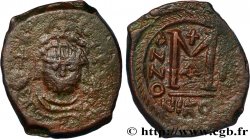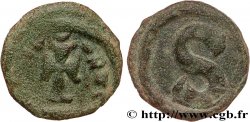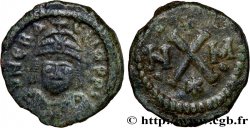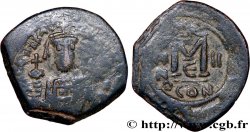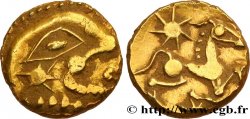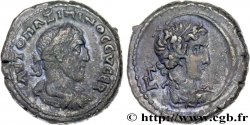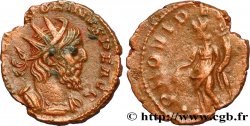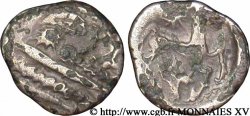Obverse
Obverse legend : D N ER-ACL[IO PP AV].
Obverse description : Buste casqué, diadémé avec pendilia, drapé et cuirassé d'Héraclius de face, imberbe, tenant le globe crucigère de la main droite.
Obverse translation : (Notre seigneur Héraclius perpétuel auguste).
Reverse
Reverse legend : KRTS À L'EXERGUE.
Reverse description : X.X entre une étoile et E, surmonté d'une croisette.
Historical background
HERACLIUS
(5/10/610-11/01/641)
Heraclius alone
Heraclius had been prefect of Africa since the reign of Maurice-Tibère. With his son, also named Heraclius, he revolted against the tyranny of Phocas. The sedition broke out in the summer of 608 and quickly the Heracliids controlled Carthage and Alexandria as well as Cyprus. On October 4, 610, Heraclius landed in Constantinople, overthrew Phocas and had him put to death. The reign of Heraclius began badly. The Sassanids occupied Asia Minor and in particular Jerusalem. From 622, Heraclius resumed the offensive and Jerusalem became Christian again in 628. Heraclius recovered the true cross, symbol of the new type of solidus. He married Martine, his niece, in second marriage. She was the mother of Heraclonas, born in 626, created Caesar in 630, associated with the throne in 638. After the death of Heraclius, on January 11, 641, Heraclius Constantine in turn disappeared on April 20, 641. This is the son of Martine, Heraclonas, who ascended the throne. As early as September, Heraclonas was obliged to crown his nephew Constans as co-emperor. He was deposed in October, mutilated and exiled with his mother to Rhodes.







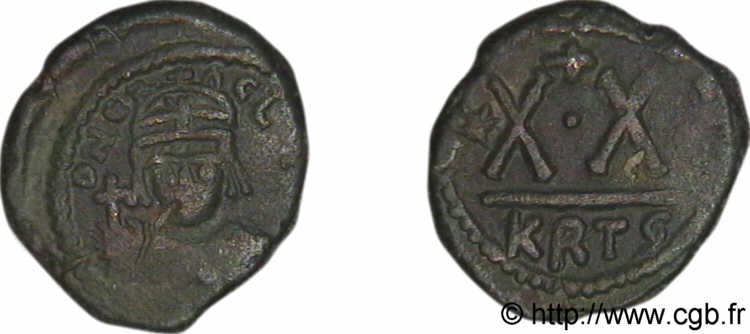
 Report a mistake
Report a mistake Print the page
Print the page Share my selection
Share my selection Ask a question
Ask a question Consign / sell
Consign / sell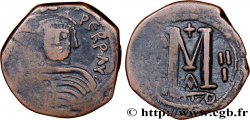
 Full data
Full data